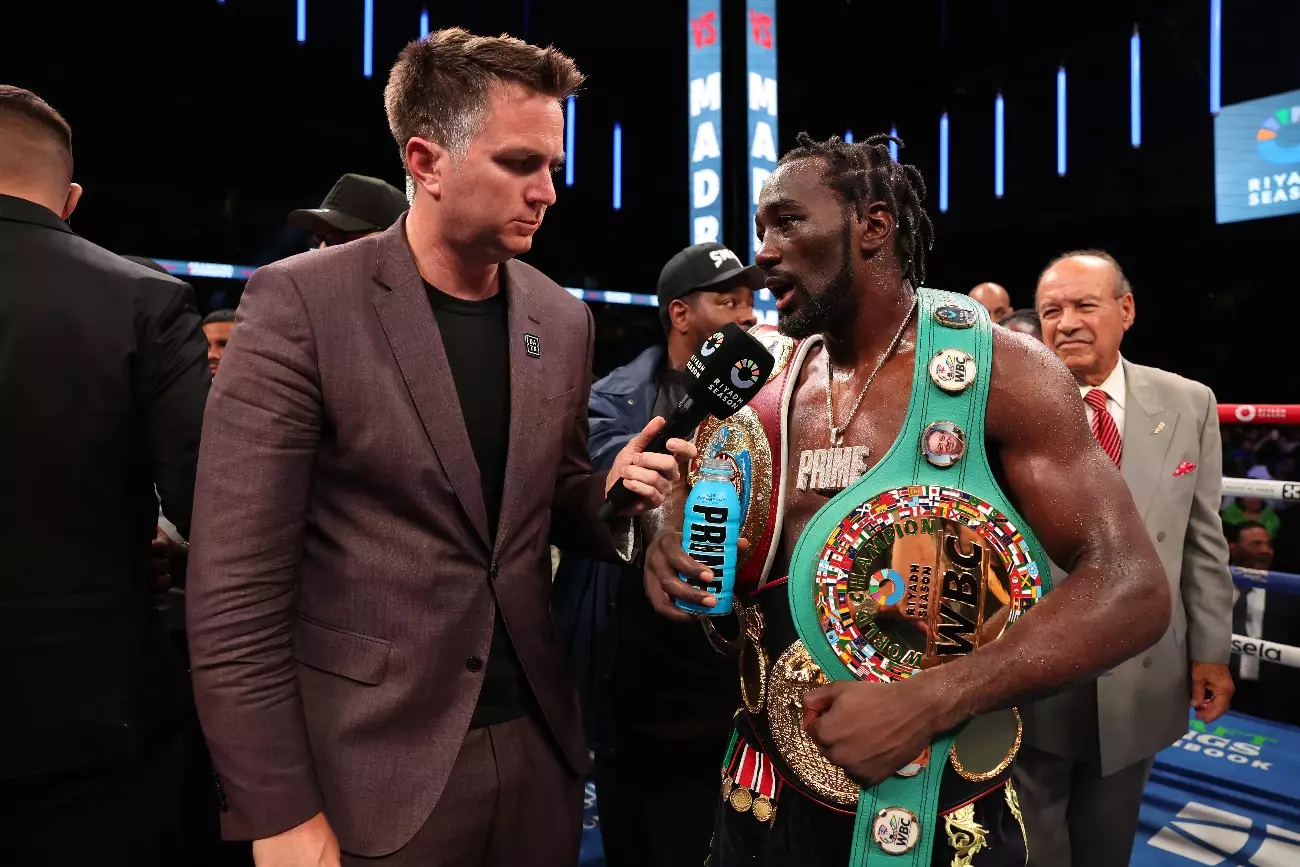In the world of combat sports, the allure of big money is a powerful motivator. However, heavyweights in the ring and cage, like Terence Crawford, sometimes recognize that prestige and legacy can outweigh monetary gains. The recent proposal for a two-fight deal between Crawford and UFC superstar Conor McGregor sparked considerable buzz, yet Crawford’s vehement refusal sheds light on the complicated dynamics of crossover bouts in combat sports.
According to reports, Saudi businessman Turki Alalshikh presented Crawford and McGregor with an enticing offer — a two-fight deal that included one boxing match and one MMA showdown. The numbers swirled in the air like confetti, with talk of hundreds of millions lining the pockets of both fighters. While it might seem unthinkable for a fighter of Crawford’s caliber to turn down such a financial incentive, the champion’s decision speaks volumes. Crawford himself recounted the conversation with McGregor, making it clear that he was not going to step into the Octagon, despite the potential financial windfall.
In an age where athletes often prioritize income over legacy, Crawford’s stance is refreshing. He has built his reputation on skill and tenacity in the boxing ring, and to risk it all for a dance with McGregor, who excels in a completely different discipline, would not only jeopardize his reputation but also his well-earned status in boxing history.
Crawford’s dialogue with McGregor illuminated a mutual respect between the two fighters regarding their respective sports. Their acknowledgment of the inherent disadvantages of crossing over disciplines reflects a deeper understanding of combat sports. Both athletes recognized that while they excel in their fields, stepping into each other’s arenas could lead to negative outcomes: Crawford facing McGregor’s kicks and ground game, while McGregor would struggle to compete in a boxing match where Crawford might exploit his skills to near perfection.
This respect is a crucial element that tends to get overlooked when hype takes center stage. The mutual admiration between fighters is rarely highlighted during promotional events. Yet, it is vital for the authenticity of combat sports as a whole. Both Crawford and McGregor understand that mastery requires more than just stepping into a ring or cage; it demands years of specialized training and an understanding of the nuances of the sport.
The trend of cross-promotion and crossover fights has reached a fever pitch in recent years, but the novelty seems to be wearing thin. Fight fans are beginning to question the authenticity and value of such bouts. The debacle that unfolded with McGregor’s loss to Floyd Mayweather several years ago served as a glaring reminder that sometimes the spectacle is more about money than the fight itself.
Crawford’s decision not only impacts his career trajectory but also sends a message to promoters and fans alike: there comes a point where the gimmickry of crossover fights risks overshadowing genuine competition. Instead of serving as exciting crossroads in a fighter’s journey, these events can devolve into mediocrity, diluting the prestige of both boxing and MMA.
Crawford’s legacy as one of the premier boxers of his generation stands solidified, and his decision to turn down this lucrative offer will likely reverberate for years to come. As an unbeaten champion, the risks associated with stepping into the cage with McGregor could have tarnished an otherwise pristine record. In a sport where reputation is everything, choosing legacy over immediate financial gain is a narrative that resonates deeply with old-school boxing fans.
Ultimately, Crawford’s choice is a reminder that the heart of competition should focus on integrity and respect for the sport. While financial opportunities can be difficult to pass up, the legacy athletes leave behind is built on more than just wealth; it is about respect, skill, and the courage to stay true to one’s discipline. Such values, long revered in the realm of sports, shine brightly in Crawford’s resolute refusal to step into the Octagon. His commitment to maintaining the purity of his craft is admirable and reminds us all of the reasons we fell in love with the sweet science in the first place.

